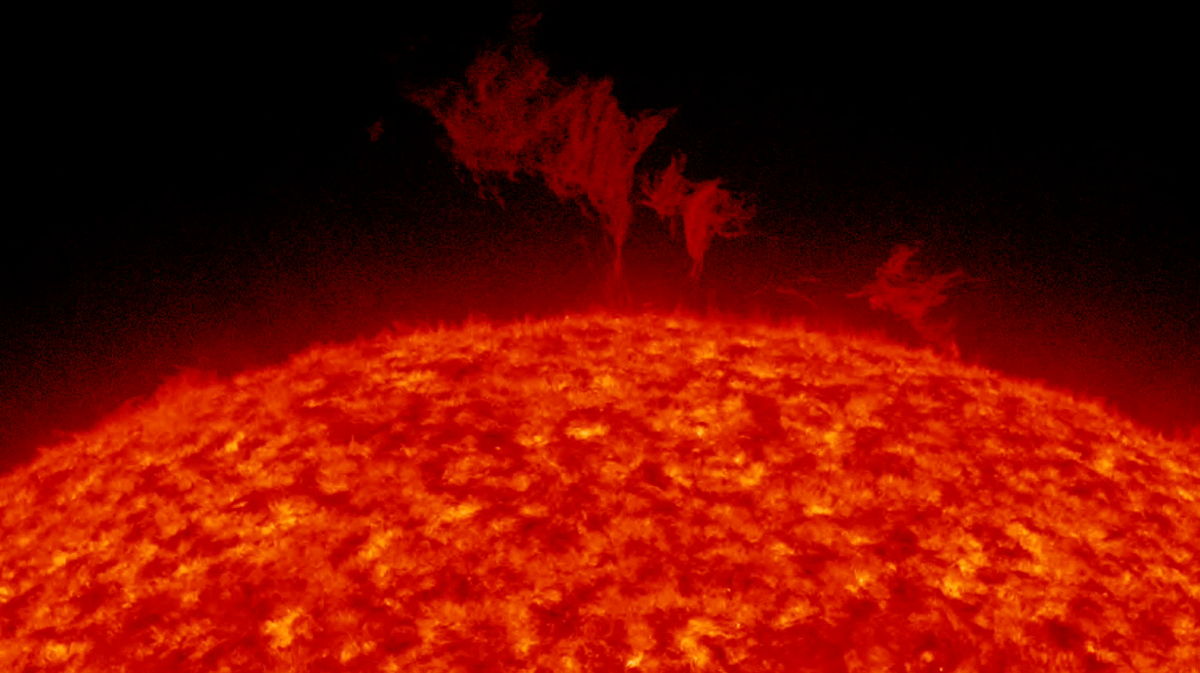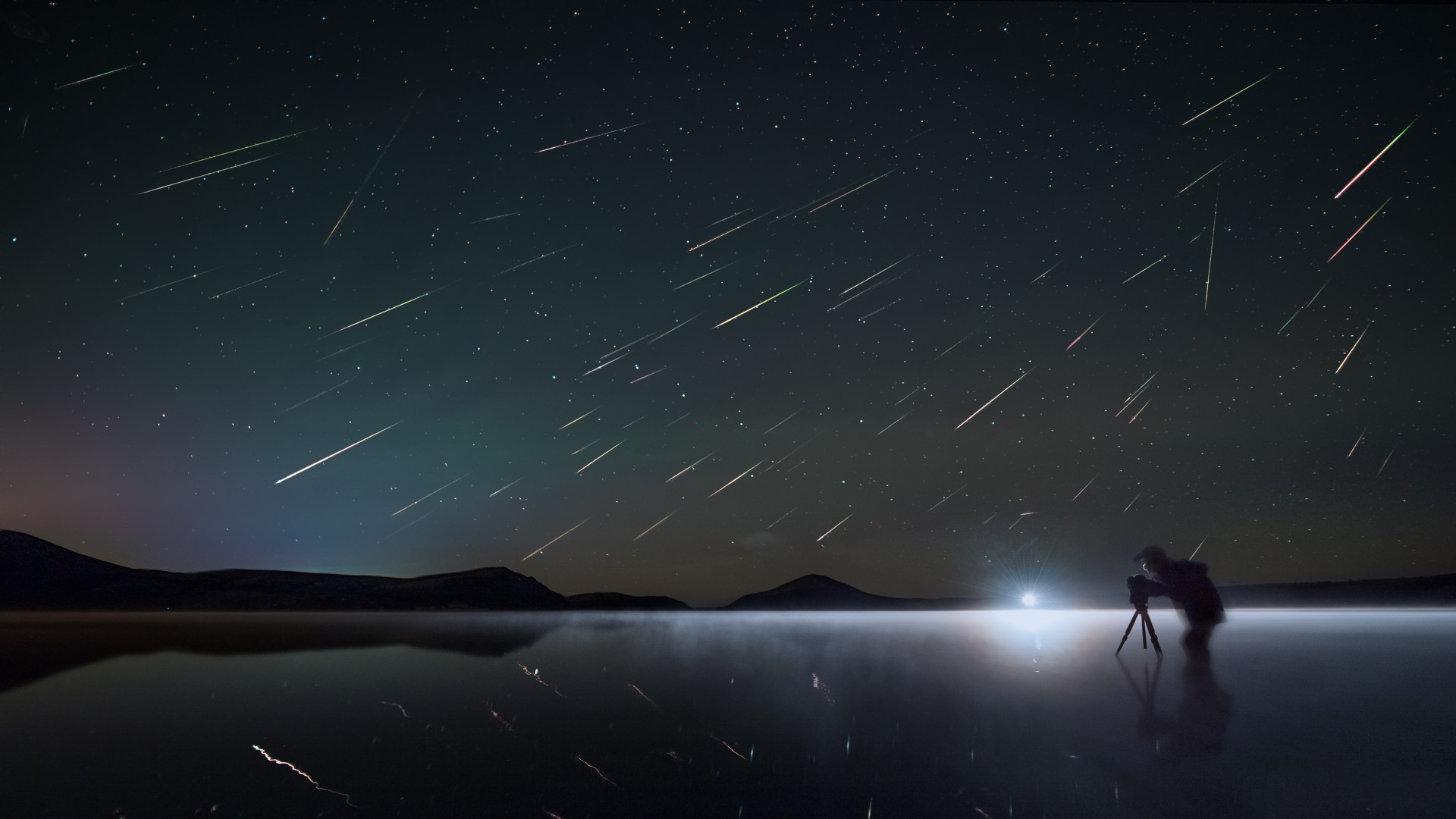A Sound of Thunder: A Movie That's Disarmed and Dangerous
Picture this: only a half-century from now, some clever scientist in Chicago invents a time machine, a heavy mound of hissing machinery that can transport you millions of years into the past with a precision of a few feet in space, and a few milliseconds in time.
Imagine what you could do with this device. Imagine the mind-boggling opportunity for answering some really big questions; cosmic questions, in fact.
With such possibilities coursing through my cranium, I was prepped for profundity and ready for revelation as I sat back to watch Peter Hyams' new film, "A Sound of Thunder." Two minutes later, I was gagging on my eight-dollar nachos. It turns out that the killer app for a machine able to rewind the clock is to send rich bozos back to the Cretaceous to hunt dinosaurs!
That's deep, dude. I mean, what about finding out whether Homo sapiens really did spread out of Africa? How about learning if a giant rock from space actually caused the great Permian extinction, or whether Mars ever had oceans? Or maybe we could just check if Shakespeare was a woman?
Building a time machine and then using it for Mesozoic hunting trips is akin to developing a space program merely to offer tourists the experience of weightless sex.
But OK, this is a movie after all, and soon enough some doubtful time travelers are sling-shot 65 million years into the past. Armed with cryogenic paintball guns, they step gingerly through a fetid, prehistoric jungle, awaiting lizardly targets. On cue, there's a chthonic "thud". And another. The ferns shake, and pools of water ripple. It's the approach of a toothy allosaurus, announcing his presence with footsteps that measure double digits on the Richter scale ("Jurassic Park," anyone?) I wonder at this. After all, elephants, whose heft is comparable to that of an allosaurus, don't shake the ground. And the only prey elephants have to worry about alerting are plants!
The tourists have been tutored in the three laws of time travel: don't leave anything behind, don't bring anything back, and never change anything in the past. But just like Isaac Asimov's robot laws, not to mention those regulating drugs or parking, these rules are made to be broken.
Get the Space.com Newsletter
Breaking space news, the latest updates on rocket launches, skywatching events and more!
One of the time travelers accidentally steps on a butterfly, changing nature's course ever so slightly. Killing an allosaurus doesn't--that beast was about to peg out anyway, stuck in mud and incinerated by a nearby volcano that blows its top. The tour operators know that. But the butterfly... well, that's unplanned. And you've probably heard of the "butterfly effect" in chaos theory, where slight irregularities can build to major consequences? In this case a slight alteration in life's daily drama has 65 million years in which to get out of hand.
And of course it does--and that's the real meat of this film, as well as of the Ray Bradbury short story on which it's based. But aside from entertaining you with what might have been, "A Sound of Thunder" also inadvertently addresses a few important themes.
Time travel, for one. The real conundrum of going back in time is that you might shoot your grandmother, or in the case of this film, everyone's grandmother. If stepping on that butterfly substantially changes the course of evolution, then presumably the time machine would never have been invented, the tourists never sent back, and the butterfly never mushed. Bradbury dealt with this brain-curdling problem by postulating only slight changes to today's world. The film, however, resorts to a bizarre trick: the evolutionary differences caused by crushing an insect appear in the present as discrete "time waves" that sweep over the city every few hours like out-of-focus tsunamis. Each wave brings new, and more severe alteration, ultimately affecting the very existence of Homo sapiens. This adds a certain tension to the story, although from a science perspective, it's just bonkers.
Then there are the scientists themselves. American films usually don't treat scientists kindly: they're nerdy at best, and malevolent and mad at worst ("we have to save the monster for science" they'll plead, while the military tries to deal with a radioactive beast 200 feet high at the shoulder, earnestly leveling New York). However, the scientists in this film are ecologists (which is a funny academic background for inventing a time machine, but hey...), and it's good to be green. This is especially true as these researchers try to warn everyone of the possible dangers of time travel, sounding a bit like Einstein cautioning Truman about atomic weaponry. But despite the fact that these scientists are well meaning and even good-looking, their message is still basically anti-science: "there are some things mankind was not meant to know."
That aside, the really interesting message here is the frailty, or otherwise, of biological evolution. If the accidental death of a single insect 65 million years ago could lead life down a path so different that intelligent beings never appeared, then our existence on this planet is, as some claim, merely the highly improbable result of chance and contingency. On the other hand, if intelligence is a seriously useful and attainable attribute for some creatures, then we--or something like us--would evolve on Earth sooner or later no matter what the fate of butterflies.
This is one of the most controversial aspects of the SETI enterprise. While we know that planets are plentiful, and while we suspect that life may be commonplace, intelligence is a development whose probability is still unknown. Maybe it's as rare as orchids in the desert.
We could solve this controversy by finding a signal from intelligent beings elsewhere, of course. And at least one of the benefits of such a discovery would be to know that, if anyone ever does invent a time machine, the dino hunters won't have to be quite so careful.
Join our Space Forums to keep talking space on the latest missions, night sky and more! And if you have a news tip, correction or comment, let us know at: community@space.com.

Seth Shostak is an astronomer at the SETI (Search for Extraterrestrial Intelligence) Institute in Mountain View, California, who places a high priority on communicating science to the public. In addition to his many academic papers, Seth has published hundreds of popular science articles, and not just for Space.com; he makes regular contributions to NBC News MACH, for example. Seth has also co-authored a college textbook on astrobiology and written three popular science books on SETI, including "Confessions of an Alien Hunter" (National Geographic, 2009). In addition, Seth ahosts the SETI Institute's weekly radio show, "Big Picture Science."









